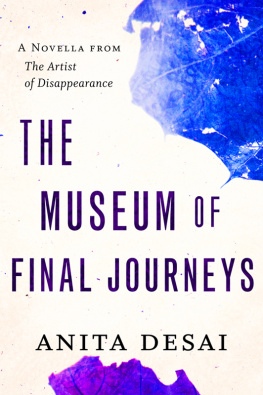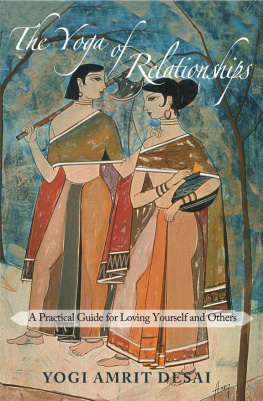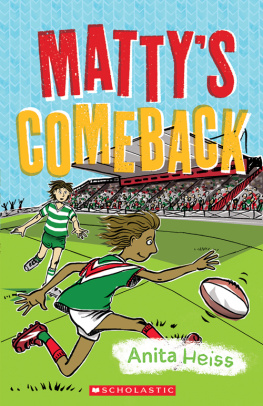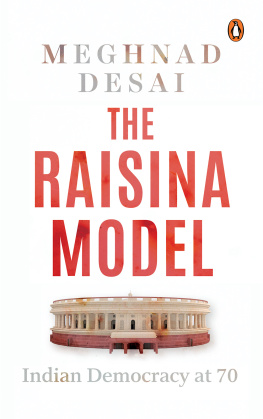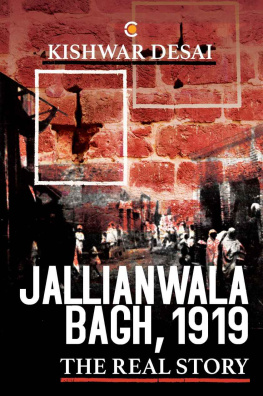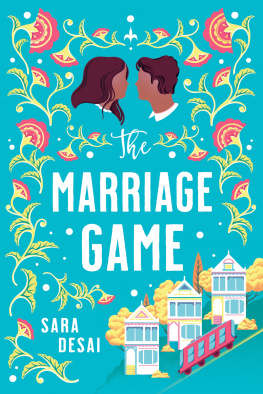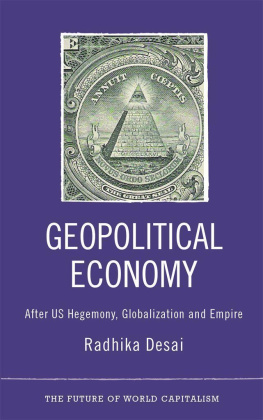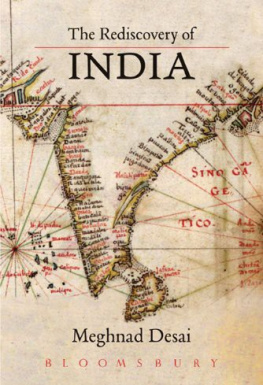Anita Desai - The Museum of Final Journeys: A Novella
Here you can read online Anita Desai - The Museum of Final Journeys: A Novella full text of the book (entire story) in english for free. Download pdf and epub, get meaning, cover and reviews about this ebook. year: 2011, publisher: Houghton Mifflin Harcourt, genre: Non-fiction. Description of the work, (preface) as well as reviews are available. Best literature library LitArk.com created for fans of good reading and offers a wide selection of genres:
Romance novel
Science fiction
Adventure
Detective
Science
History
Home and family
Prose
Art
Politics
Computer
Non-fiction
Religion
Business
Children
Humor
Choose a favorite category and find really read worthwhile books. Enjoy immersion in the world of imagination, feel the emotions of the characters or learn something new for yourself, make an fascinating discovery.
- Book:The Museum of Final Journeys: A Novella
- Author:
- Publisher:Houghton Mifflin Harcourt
- Genre:
- Year:2011
- Rating:4 / 5
- Favourites:Add to favourites
- Your mark:
- 80
- 1
- 2
- 3
- 4
- 5
The Museum of Final Journeys: A Novella: summary, description and annotation
We offer to read an annotation, description, summary or preface (depends on what the author of the book "The Museum of Final Journeys: A Novella" wrote himself). If you haven't found the necessary information about the book — write in the comments, we will try to find it.
The Museum of Final Journeys: A Novella — read online for free the complete book (whole text) full work
Below is the text of the book, divided by pages. System saving the place of the last page read, allows you to conveniently read the book "The Museum of Final Journeys: A Novella" online for free, without having to search again every time where you left off. Put a bookmark, and you can go to the page where you finished reading at any time.
Font size:
Interval:
Bookmark:
First U.S. edition
Copyright 2011 by Anita Desai
ALL RIGHTS RESERVED
For information about permission to reproduce selections from this book,
write to Permissions, Houghton Mifflin Harcourt Publishing Company,
215 Park Avenue South, New York, New York 10003.
www.hmhbooks.com
First published in Great Britain in 2011 by Chatto & Windus
E-ISBN 978-0-547-67787-3
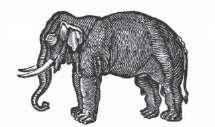
W E HAD DRIVEN for never-ending miles along what seemed to be more a mudbank than a road between fields of virulent greenjute? rice? what was it this benighted hinterland produced? I ought to have known, but my head was pounded into too much of a daze by the heat and the sun and the fatigue to take in what my driver was telling me in answer to my listless questions.
The sun was setting into a sullen murk of ashes and embers along the horizon when he turned the jeep into the circular driveway in front of a low, white bungalow. This was the circuit house where I was to stay until I had found a place of my own. As a very junior officer, a mere subdivisional officer in the august government service, it was all I could expect, a temporary place for one of its minor servants. There was nothing around but fields and dirt roads and dust, no lights or signs of a town to be seen. Noting my disappointment and hesitation at the first sight of my new residencewhere had we come to?the driver climbed out first, lifted my bags from the back of the jeep and led the way up the broad steps to a long veranda which had doors fitted with wire screens one could not see through. He clapped his hands and shouted, 'Koi hai?' I had not imagined anyone still used that imperious announcement from the days of the Raj: Anyone there? But perhaps, in this setting, itself a leftover from the empire, not so incongruous at all. Besides, there was no bell and one cannot knock on a screen door.
I didn't think anyone had heard. Certainly no light went on and no footsteps were to be heard, but in a bit someone came around the house from the back where there must have been huts or quarters for servants.
'I've brought the new officer-sahib,' the driver announced officiously (he wore a uniform of sorts, khaki, with lettering in red over the shirt pocket that gave him the right). 'Open a room for him. And switch on some lights, will you?'
'No lights,' the man replied with dignity. He wore no uniform, only some loose clothing, and his feet were bare, but he held his back straight and somehow established his authority. 'Power cut.'
'Get a lantern then,' the driver barked. He clearly enjoyed giving orders.
I didn't, and was relieved when the chowkidarfor clearly he was the watchman for all his lack of a uniformtook over my bags and the driver turned to leave. It was night now, and when I saw the headlights of the jeep sweep over the dark foliage that crowded against the house and lined the driveway, then turn around so that the tail lights could be seen to dwindle and disappear, I felt my heart sinking. I did not want to stay in this desolate place, I wanted to run after the jeep, throw myself in and return to a familiar scene. I was used to city life, to the cacophony of traffic, the clamour and din and discordancy of human voices, the pushing and shoving of humanity, all that was absent here.
While I stood waiting on the veranda for a lamp to be lit so I could be shown to my room, I listened to the dry, grating crackle of palm leaves over the roof, the voices of frogs issuing low warnings from some invisible pond or swamp nearby, and these sounds were even more disquieting than the silence.
A lighted lantern was finally brought out and I followed its ghostly glow in, past large, looming pieces of furniture, to the room the chowkidar opened for me. It released a dank odour of mildew as of a trunk opened after a long stretch of time and a death or two, and I thought this was surely not a chapter of my life; it was only a chapter in one of those novels I used to read in my student days, something by Robert Louis Stevenson or Arthur Conan Doyle or Wilkie Collins (I had been a great reader then and secretly hoped to become a writer). I remembered, too, the hated voice of the gym master at school shouting 'Stiffen up now, boys, stiffen up!' and I nearly laugheda bitter laugh.
All the actions that one performs automatically and habitually in the real world, the lighted worldof bathing, dressing, eating a mealhere had to be performed in a state of almost gelid slow motion. I carried the lantern into the bathroom with meit created grotesquely hovering shadows rather than light, and made the slimy walls and floor glisten dangerouslyand made do with a rudimentary bucket of water and a tin mug. To put on a clean set of clothes when I could scarcely make out what I had picked from my suitcase (packed with an idiotic lack of good sense: a tie? when would I ever wear a tie in this pit?) and then to find my way to the dining room and sit down to a meal placed before me that I could scarcely identifywas it lentils, or a mush of vegetables, and was this whitish puddle rice or what?all were manoeuvres to be carried out with slow deliberation, so much so that they seemed barely worthwhile, just habits belonging to another world and time carried on weakly. The high-pitched whining of mosquitoes sounded all around me and I slapped angrily at their invisible presences.
Then, with a small explosion, the electricity came on and lights flared with an intensity that made me flinch. An abrupt shift took place. The circuit house dining room, the metal bowls and dishes set on the table, the heavy pieces of furniture, the yellow curry stains on the tablecloth all revealed themselves with painful clarity while the whine of mosquitoes faded with disappointment. Now large, winged ants insinuated their way through the wire screens and hurled themselves at the electric bulb suspended over my head; some floated down into my plate where they drowned in the gravy, wings detaching themselves from the small, floundering worms of their bodies.
I pushed back my chair and rose so precipitately, the chowkidar came forward to see what was wrong. I saw no point in telling him that everything was. Instructing him abruptly to bring me tea at six next morning, I returned to my room. It felt like a mercy to turn off the impudent light dangling on a cord over my bed and prepare to throw myself into it for the night.
I had not taken the mosquito net that swaddled the bed into account. First I had to fumble around for an opening to crawl in, then tuck it back to keep out the mosquitoes. At this I failed, and those that found themselves trapped in the netting with me, furiously bit at every exposed surface they could find. What was more, the netting prevented any breath of air reaching me from the sluggishly revolving fan overhead.
Throughout the night voices rang back and forth in my head: would I be able to go through with this training in a remote outpost that was supposed to prepare me for great deeds in public service? Should I quit now before I became known as a failure and a disgrace? Could I appeal to anyone for help, some mentor, or possibly my father, retired now from this very service, his honour and his pride intact like an iron rod he had swallowed?
Across the jungle, or the swamp or whatever it was that surrounded this isolated house, pai dogs in hamlets and homesteads scattered far apart echoed the voices in my head, some questioning and plaintive, others fierce and challenging.
If I had not been 'stiffened up' in school and by my father, I might have shed a tear or two into my flat grey pillow. I came close to it but morning rescued me.
Next pageFont size:
Interval:
Bookmark:
Similar books «The Museum of Final Journeys: A Novella»
Look at similar books to The Museum of Final Journeys: A Novella. We have selected literature similar in name and meaning in the hope of providing readers with more options to find new, interesting, not yet read works.
Discussion, reviews of the book The Museum of Final Journeys: A Novella and just readers' own opinions. Leave your comments, write what you think about the work, its meaning or the main characters. Specify what exactly you liked and what you didn't like, and why you think so.

